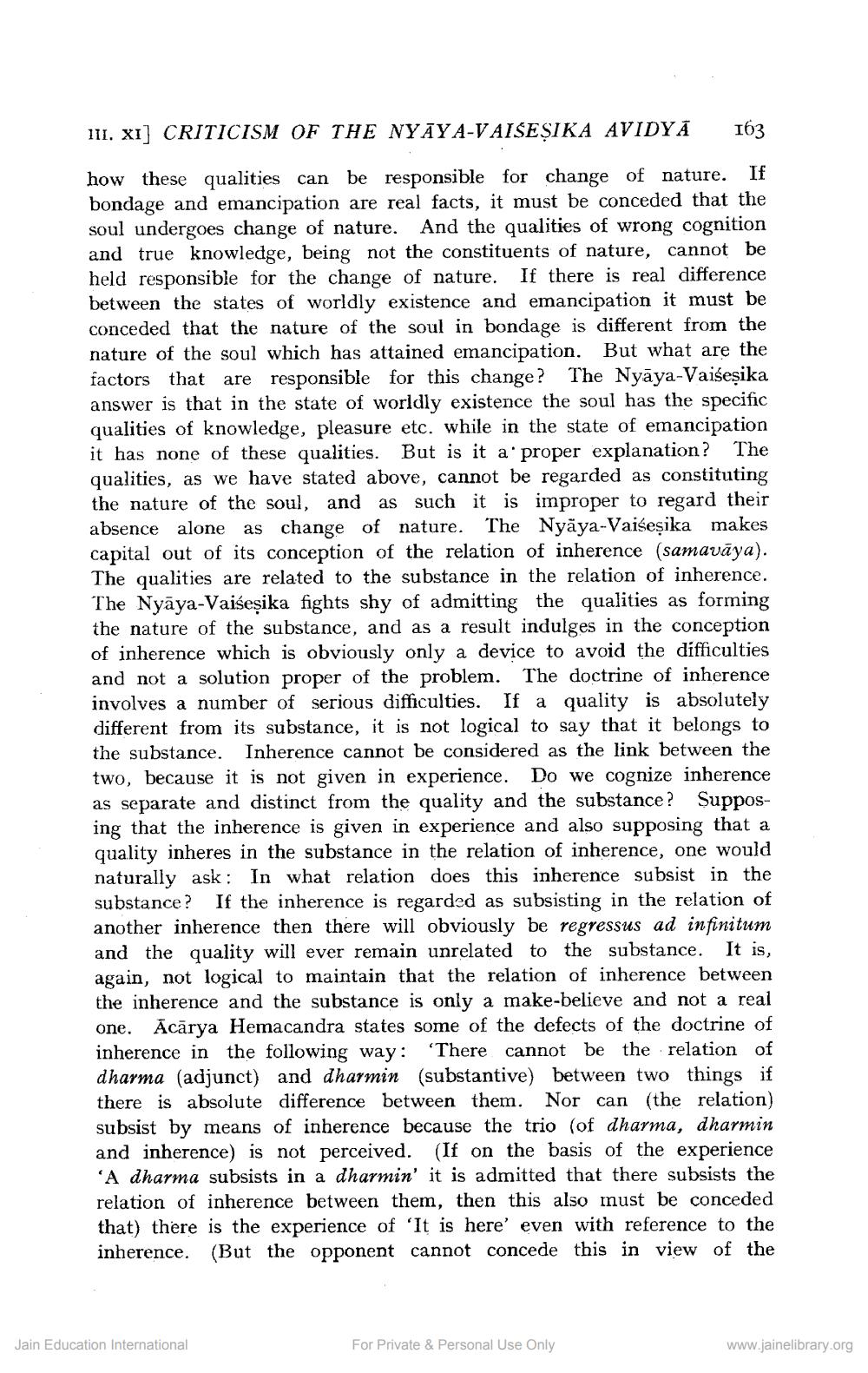________________
III. XI] CRITICISM OF THE NYAYA-VAISEŞIKA AVIDYA
163
If
how these qualities can be responsible for change of nature. bondage and emancipation are real facts, it must be conceded that the soul undergoes change of nature. And the qualities of wrong cognition and true knowledge, being not the constituents of nature, cannot be held responsible for the change of nature. If there is real difference between the states of worldly existence and emancipation it must be conceded that the nature of the soul in bondage is different from the nature of the soul which has attained emancipation. But what are the factors that are responsible for this change? The Nyaya-Vaiseṣika answer is that in the state of worldly existence the soul has the specific qualities of knowledge, pleasure etc. while in the state of emancipation it has none of these qualities. But is it a proper explanation? The qualities, as we have stated above, cannot be regarded as constituting the nature of the soul, and as such it is improper to regard their absence alone as change of nature. The Nyaya-Vaiseṣika makes capital out of its conception of the relation of inherence (samavaya). The qualities are related to the substance in the relation of inherence. The Nyaya-Vaiseṣika fights shy of admitting the qualities as forming the nature of the substance, and as a result indulges in the conception of inherence which is obviously only a device to avoid the difficulties and not a solution proper of the problem. The doctrine of inherence involves a number of serious difficulties. If a quality is absolutely different from its substance, it is not logical to say that it belongs to the substance. Inherence cannot be considered as the link between the two, because it is not given in experience. Do we cognize inherence as separate and distinct from the quality and the substance? Supposing that the inherence is given in experience and also supposing that a quality inheres in the substance in the relation of inherence, one would naturally ask: In what relation does this inherence subsist in the substance? If the inherence is regarded as subsisting in the relation of another inherence then there will obviously be regressus ad infinitum and the quality will ever remain unrelated to the substance. It is, again, not logical to maintain that the relation of inherence between the inherence and the substance is only a make-believe and not a real one. Acarya Hemacandra states some of the defects of the doctrine of inherence in the following way: 'There cannot be the relation of dharma (adjunct) and dharmin (substantive) between two things if there is absolute difference between them. Nor can (the relation) subsist by means of inherence because the trio (of dharma, dharmin and inherence) is not perceived. (If on the basis of the experience 'A dharma subsists in a dharmin' it is admitted that there subsists the relation of inherence between them, then this also must be conceded that) there is the experience of 'It is here' even with reference to the inherence. (But the opponent cannot concede this in view of the
Jain Education International
For Private & Personal Use Only
www.jainelibrary.org




